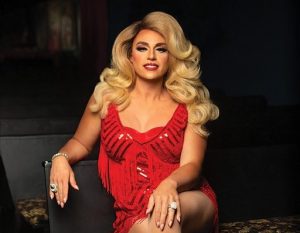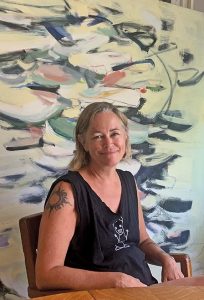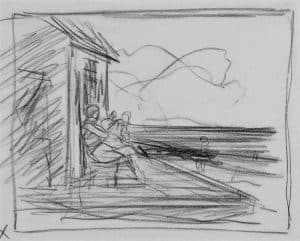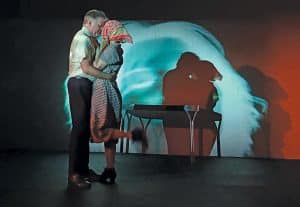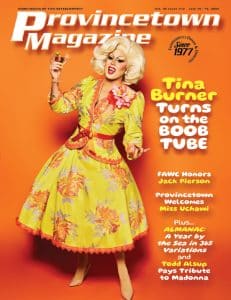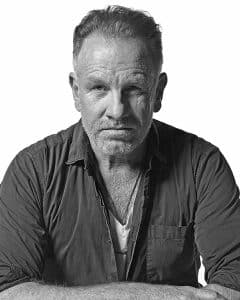Photo: Aubrey Edwards
by Jeannette de Beauvoir
When Nikki Hill heard she would be appearing at the Payomet tent in North Truro this July 29th, she took out a map to see where it was. “You couldn’t get much further out!” she says.
Coming back to a tent may in some ways be going full circle for Hill, who was raised on the kind of Gospel music that uses church buildings and big tents alike as a stage. “I dreaded going to church,” confesses Hill, “except that the music was really good, and I got captured watching the performance. I went to church because that’s what my parents expected me to do, but I loved the energy and the intensity of being up there performing in front of people. In a way it was Intro To Show Biz 101. You get a chance to capture the audience with the power of music and the power of words. I learned it there, and I loved it. But I never expected to be in music professionally. Growing up, that was never a career choice.”
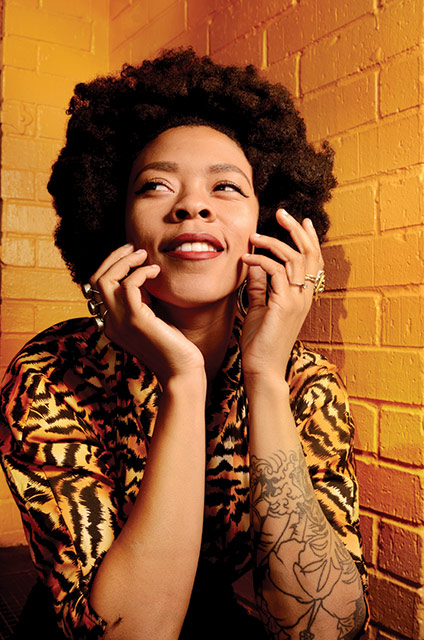
Once she was in her teens, Hill obsessed about music, delved into roots and R&B, and found that “so many of the artists I really liked also came up in the church. So much really is the passion to it. Otis Redding, Sam Cooke, Mavis Staples, Aretha Franklin, these great voices, their great showmanship—the main link between them is giving it everything. That’s what people are attracted to about soul: it means giving it all, leaving it all on the stage.”
Hill began exploring her options. “I lived in the town next to Chapel Hill, and I kept going in there all the time to listen to music, because a lot of it was free or super-cheap. It was the best thing I could get for my buck: I could get to a show and sit around and be part of the action. I was seeking my own way of being different,” she says.
That meant integrating all the different music she’d been exposed to with what she was hearing for the first time. “At home my mom and sisters listened to what was on TV or radio, or else ‘90s R&B and hip-hop, and so I got that at home. But then it was cool to see all these punk bands, up-and-coming groups like the Carolina Chocolate Drops, the Squirrel Nut Zippers; this was a culture I’d never seen before.”
She started exploring every genre she could, which included the roots music scene. “I went to so many shows, and I’m pretty easy to recognize in that sea of white guys who are into roots music!” she says and laughs. It’s how she met her husband. “We hit it off right away. We had similar musical passions; I loved his solo work. We were great friends for years before we started dating—it was amazing, this deep friendship that developed into true love! Even before we fell in love, though, there was always something special, being able to turn to him with anything, we could talk about anything together. And then the romance started to step in along with working together—it’s just an amazing feeling, having that one person that you know really gravitates toward what you’re saying and understands it on a level that no one else does. He’s completely had my back through this career explosion that’s been happening in the past few years.” She laughs. “And the travel together is amazing. I never have to say, ‘I wish my husband were here to see this.’”
Traveling hasn’t cut down on Hill’s trademark energy: even watching a clip of her on YouTube makes one want to get up and move, do something, participate. “I’m not a religious person,” she says, “but the stage, for me, is what feels like church. I release everything there. Anger, sadness, confusion, joy. Give me 90 minutes to release things, and that’s what’s going to happen!”
The energy is reflected in the musicians she admires the most. If she could share the stage with anyone, who would it be? “At the moment, Otis Redding,” Hill responds. “He gave off this feeling of wanting to do something. It resonates with that same feeling in me. He had such energy and passion and originality. It all seemed very much him, very much who he was, which is a hard thing to come by, that kind of honesty on stage.”
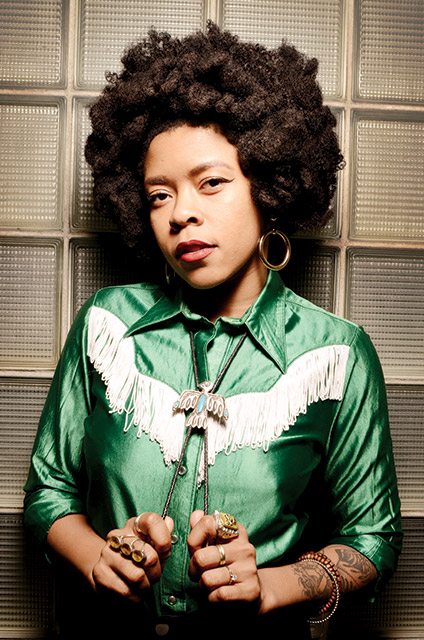
What would she be doing if she weren’t singing and performing? “I have a degree in exercise physiology,” Hill answers. “That job is rooted in energy also, and in helping heal other people, helping them get through their day, which is actually connected to music in a lot of ways. I love knowing I’ve helped someone physically, or mentally, or in combination. There’s such a strong parallel with music.”
For Hill, everything is about that energy that she expends and gives to others; and it’s also embedded in her inspiration. “It means that everything is personal,” she says. “You’re not obligated to sit around with a bunch of dudes and write hits, so you can express yourself through your own words and your own experiences. It’s writing about things that make me happy, it’s about releasing anger, I just let it all really guide what I feel like I need to say or to release. It’s free thought that ends up turning into songs. It’s a way of structuring your thoughts so they just come out that way. Listen, I’m a southern black woman: it’s all there right in your face. Life and living gives me enough to say!”
Nikki Hill is performing at Payomet Performing Arts Center, 29 Old Dewline Rd., North Truro, on Thursday, June 29, 8 p.m. For tickets ($20-$30/$18-$28 for Members) and information call 508.487.5400 or visit payomet.org.



